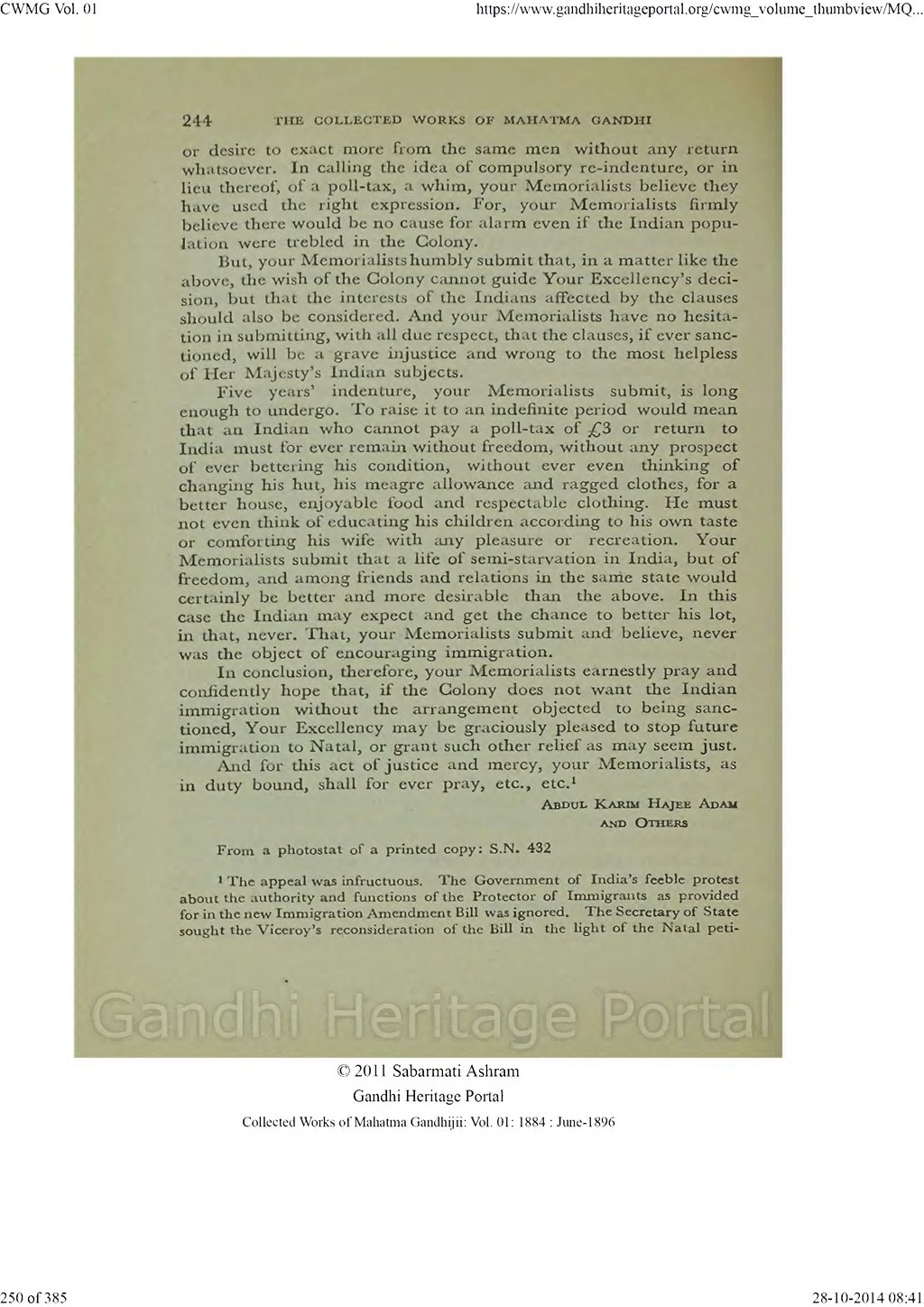or desire to exact more from the same men without any return whatsoever. In calling the idea of compulsory re-indenture, or in lieu thereof, of a poll-tax, a whim, your Memorialists believe they have used the right expression. For, your Memorialists firmly believe there would be no cause for alarm even if the Indian population were trebled in the Colony.
But, your Memorialists humbly submit that, in a matter like the above, the wish of the Colony cannot guide Your Excellency’s decision, but that the interests of the Indians affected by the clauses should also be considered. And your Memorialists have no hesitation in submitting, with all due respect, that the clauses, if ever sanctioned, will be a grave injustice and wrong to the most helpless of Her Majesty’s Indian subjects.
Five years’ indenture, your Memorialists submit, is long enough to undergo. To raise it to an indefinite period would mean that an Indian who cannot pay a poll-tax of £3 or return to India must for ever remain without freedom, without any prospect of ever bettering his condition, without ever even thinking of changing his hut, his meagre allowance and ragged clothes, for a better house, enjoyable food and respectable clothing. He must not ever think of educating his children according to his own taste or comforting his wife with any pleasure of recreation. Your Memorialists submit that a life of semistarvation in India, but of freedom, and among friends and relations in the same state would certainly be better and more desirable than the above. In this case the Indian may expect and get the chance to better his lot, in that, never. That, your Memorialists submit and believe, never was the object of encouraging immigration.
In conclusion, therefore, your Memorialists earnestly pray and confidently hope that, if the Colony does not want the Indian immigration without the arrangement objected to being sanctioned, Your Excellency may be graciously pleased to stop future immigration to Natal, or grant such other relief as may seem just. And for this act of justice and mercy, your Memorialists, as in duty bound, shall for ever pray, etc., etc.[24]
ABDUL KARIM HAJEE ADAM
AND OTHERS
From a photostat of a printed copy: S.N. 432
- 21↑ Vide the preceding item.
- 22↑ Vide the preceding item.
- 23↑ Vide “Memorial to J. Chamberlain”, 11-8-1895
- 24↑ The appeal was infructuous. The Government of India's feeble protest about the authority and functions of the Protector of Immigrants as provided for in the new Immigration Amendment Bill was ignored. The Secretary of State sought the Viceroy's reconsideration of the Bill in the light of the Natal petitions pending Royal assent to it. Lord Elgin only reiterated his earlier view. (Vide The Early Phase, pp. 521-2). The Bill received Royal sanction and became Law on August 18, 1896.
=== Report of the Natal Indian Congress (
